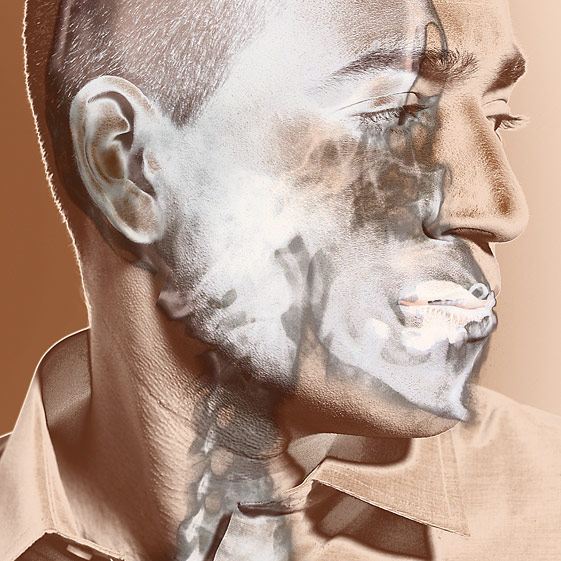
SATURDAY, Jan. 1 (HealthDay News) — During this season of good cheer and abundant holiday parties, hangovers are not uncommon. And while folk remedies abound, the only things that are truly helpful in curing the misery of a hangover the morning after are time and fluid replacement, experts say.
Although the cause of a hangover — drinking too much alcohol — is obvious, the reason behind alcohol’s ability to make you feel so rotten the day after isn’t as clear.
“Alcohol clearly causes hangovers, but why it causes hangovers isn’t very well understood,” said Dr. Andrew Yacht, director of the division of general medicine and vice chair of medicine for education at Maimonides Medical Center in New York City.
“Part of the suspected cause is dehydration and an electrolyte and hormonal imbalance. Some of the symptoms may be caused by low blood sugar. Or, it may be that the direct toxic effects of alcohol are causing the symptoms,” he explained.
Dehydration is probably one of the more important reasons for a hangover, said Dr. Brandon Browne, a staff physician in the department of emergency medicine at Scott & White Healthcare in Round Rock, Tex. “Alcohol is a diuretic, which means that it helps the body get rid of fluids. When you have a severe hangover, you’re often severely dehydrated, and the body can’t get rid of the byproducts of metabolizing alcohol (metabolites). And those metabolites are irritating.”
The type of alcohol you drink can also make a difference. “The darker the alcohol, the more potential there is for a hangover. The theory is that the congeners — a byproduct of distillation that imparts color, taste and aroma — found in rum, red wine, brandy and whisky make a hangover more likely than if you drink clearer alcohol, such as vodka, white wine or gin,” said Yacht.
Research backs this theory up. In a study published earlier this year in Alcoholism: Clinical & Experimental Research, researchers found that when people drank enough to be intoxicated, drinking bourbon produced a more severe hangover than did drinking vodka.
That doesn’t mean you can drink clear alcohol with impunity. “It all comes down to volume,” cautioned Yacht. No matter what the type of alcohol, if you drink too much, you will get a hangover.
Hangover symptoms are usually unmistakable, but according to the U.S. National Institute on Alcohol Abuse and Alcoholism they may include:
- Thirst
- Fatigue, often accompanied by an inability to sleep
- Weakness
- Headache and muscle aches
- Irritability
- Nausea, vomiting and stomach pain
- Dizziness
- Sensitivity to light and sound
- Decreased ability to concentrate or focus
There are steps you can take to help lessen the chance of a hangover the next morning, Yacht said. The first is to eat a meal before you start drinking. “Food helps slow the metabolism of alcohol,” he said.
Also, try drinking water, juice or another non-caffeinated beverage in between each alcoholic drink. Not only will this help slow your alcohol consumption, but it will also help to replace some of the lost fluids, he said.
Browne also recommended pacing yourself. “Don’t drink large amounts of alcohol quickly. If you do, the liver gets slammed with alcohol and the alcohol gets absorbed more rapidly,” he said. (The general rule of thumb is one drink an hour, since that is usually all the alcohol your liver can effectively process in that time.)
So what should you do if you’ve already overindulged and feel like death warmed over?
Try to drink water, juice or sports beverages, such as Gatorade or Powerade, recommend both experts. Browne said that sports drinks may be especially helpful because they help replace lost electrolytes.
The next thing to do for a hangover, said Yacht, is to treat any symptoms you have. If you have a headache or muscle aches, taking aspirin, ibuprofen or acetaminophen can help. If your stomach is upset, an antacid may help calm it, he advised.
Yacht said that over-the-counter hangover remedies or cures don’t work, so save your money. And, taking drugs like aspirin, ibuprofen or acetaminophen before you drink won’t help either, and could cause harm, he said.
In fact, combining alcohol with acetaminophen — found in Tylenol, among other products — can seriously damage the liver. The U.S. Food and Drug Administration also warns that if you consume more than three alcoholic beverages every day, consult with your doctor before taking acetaminophen at all.
If you can keep food down, Yacht said a good meal can help.
The one thing both experts agreed you should never do? Drink more alcohol. “The worst thing you can do is drink more alcohol. It doesn’t help and it’s only enhancing the existing toxicity and making dehydration worse,” said Yacht.
The good news is that time will cure a hangover. Your symptoms will probably last between eight and 24 hours, said Yacht.
“No matter what you do, a hangover will eventually get better,” said Yacht.
More information
Read more on hangover treatments from the U.S. National Library of Medicine.

